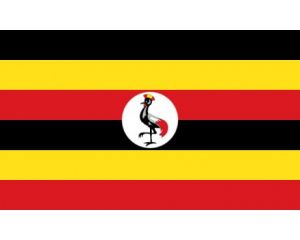Language/Ganda/Grammar/Questions
Hi Ganda learners! 😊
In today's lesson, we will be learning how to ask questions in Ganda. Asking questions is an important part of any language, and Ganda is no exception. We will cover the basics of forming questions, as well as some more advanced topics. By the end of this lesson, you should have a good understanding of how to ask questions in Ganda.
Basic Question Formation
The basic structure for forming questions in Ganda is quite simple. All you need to do is add the particle "ka" to the end of the sentence. For example:
- Ndagala (I am eating) becomes Ndagala ka? (Am I eating?)
- Ndabula (I am drinking) becomes Ndabula ka? (Am I drinking?)
This structure works for all types of sentences, including affirmative, negative, and interrogative sentences.
Yes/No Questions
Yes/no questions are the most common type of questions in Ganda. To form a yes/no question, simply add the particle "ka" to the end of the sentence. For example:
- Ndagala (I am eating) becomes Ndagala ka? (Am I eating?)
- Ndabula (I am drinking) becomes Ndabula ka? (Am I drinking?)
Wh-Questions
Wh-questions are used to ask for specific information. To form a wh-question, start with the wh-word (e.g. who, what, when, where, why, how) followed by the particle "ka". For example:
- Kino (Who?) becomes Kino ka? (Who?)
- Kintu (What?) becomes Kintu ka? (What?)
- Kikolera (When?) becomes Kikolera ka? (When?)
- Ki (Where?) becomes Ki ka? (Where?)
- Kino (Why?) becomes Kino ka? (Why?)
- Kino (How?) becomes Kino ka? (How?)
Tag Questions
Tag questions are used to confirm or challenge a statement. To form a tag question, start with the statement followed by the particle "ka" and the appropriate pronoun. For example:
- Ndagala (I am eating) becomes Ndagala ka nyo? (Am I eating, right?)
- Ndabula (I am drinking) becomes Ndabula ka nyo? (Am I drinking, right?)
If you have any questions, please ask them in the comments section below.
Feel free to edit this wiki page if you think it can be improved. 😎

